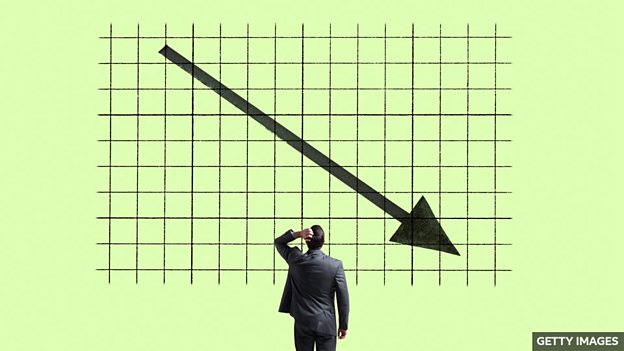你問我答
辨析表示 “變壞” 的動詞:deteriorate, aggravate

內容簡介
一位網友想知道 “deteriorate” 和 “aggravate” 之間是否有區別。這兩個詞的意思都和 “事情變得更糟糕” 有關,但它們的用法不同。“Deteriorate” 作不及物動詞使用,表示 “惡化,變壞”,但無需說明導致 “惡化” 的原因;“aggravate” 只能作及物動詞使用,強調 “加劇,使(原本存在的問題變得)更嚴重”,它還有 “激怒” 的意思。本期節目講解這對近義詞在用法上的區別。
歡迎你加入并和我們一起討論英語學習的方方面面。請通過微博 “BBC英語教學” 或郵件與我們取得聯系。我們的郵箱地址是 questions.chinaelt@bbc.co.uk
文字稿
(關于臺詞的備注: 請注意這不是廣播節目的逐字稿件。本文稿可能沒有體現錄制、編輯過程中對節目做出的改變。)
Phil
Hello and welcome to Question and Answer of the Week. I'm Phil.
Jiaying
And I'm Jiaying. 本期 “你問我答” 節目的問題來自一位網友。問題如下:
Question
Hello, what's the difference between 'aggravate' and 'deteriorate'? How do we use each of them?
Phil
OK, that's a really good question! These are two verbs that we often use to talk about situations which are getting worse.
Jiaying
在表示 “情況變壞” 時,“aggravate” 和 “deteriorate” 的主要區別就在于動詞的主語是人還是物。請大家牢記這一點。
Phil
OK, Let's look at 'deteriorate' first. The meaning is quite straightforward – it just means 'to get worse'.
Jiaying
是的,“deteriorate” 常被用來指 “(健康、經濟或組織的財務狀況、標準、建筑物或基礎設施等事物)惡化、變壞”。
Phil
An important thing about the way we use this word, is that it focuses on the process of something getting worse.
Jiaying
要注意:“deteriorate” 主要強調 “事物變壞的過程”。與這一點相關的是,“deteriorate” 常作不及物動詞使用,后面沒有直接賓語。我們把 “變壞或惡化的事物” 作為句子的主語,“deteriorate” 則是謂語動詞。
Phil
Yes, so, if we use it in this way, we don't have to say what is causing the subject to get worse – sometimes we don't know, sometimes it's not important, and sometimes it's just not our main focus.
Jiaying
沒錯,你說的這點很重要:在使用不及物動詞 “deteriorate” 的時候,通常不在句子中具體說明導致情況惡化的原因,這可能是原因未知、不重要或不是我們想要表達的重點。聽三個例句,想一想句子中要重點說明什么。
Examples
The company's finances have been deteriorating for the last few years.
(過去幾年,這家公司的財務狀況一直在惡化。)
It's so sad to see how her health has deteriorated recently.
(看到她的健康狀況最近越來越差,真讓人難過。)
These buildings are just deteriorating – they desperately need to be renovated.
(這些建筑物受損,急需翻新。)
Jiaying
在上面的三個例句中,主語所指的事物都在 “deteriorate(惡化)”,分別是:“the company's finances(這家公司的財務狀況)”、“her health(她的健康狀況)”、“the buildings(建筑物的狀況)”,但都沒有說明導致狀況惡化的原因。
Phil
It is possible to use 'deteriorate' transitively – and here we use the cause of the decay as the subject of the verb and the thing that gets worse as the object. Do note that this way of using 'deteriorate' is probably less common.
Examples
Excessive heat could deteriorate the paintwork.
(過熱會使油漆變質。)
Damp can deteriorate the structure.
(潮濕可能會使建筑物受損。)
Jiaying
注意到了嗎?“Deteriorate” 作及物動詞時,主語經常是導致賓語 “惡化” 的環境因素。
Phil
Right, so we've had a good look at what 'deteriorate' means and how we use it. Now, let's have a look at 'aggravate' – which can also be about things getting worse. There are two main meanings, and in the one that we're going to look at first, 'aggravate' means 'to make a bad situation worse'.
Jiaying
問題中的第二個詞 “aggravate” 是及物動詞,后面總是接直接賓語,意思是 “加劇,加重”。
Phil
So, straight away, that's one big difference with the most common way of using 'deteriorate', and it means that we're focusing directly on what's making things worse.
Jiaying
前面我們講到,在使用動詞 “deteriorate” 的時候,不需要說是何人或何物導致了事物 “惡化”,但在使用 “aggravate” 的時候則必須說明原因。
兩詞的另一個區別是:動詞 “aggravate” 在表示 “加劇” 時,后面跟的賓語必須是一個原本已經很糟糕的問題或情況。
Phil
Yes, that's important to remember. When we use it this way, we can only aggravate a problem or a bad situation. Anything can deteriorate.
Jiaying
是的。聽兩個例句,想一想每句話中原本存在的問題是什么,導致其惡化的原因是何人或何物。
Examples
The long dry summer aggravated the drought.
(漫長而干燥的夏季加劇了旱情。)
No one was happy before, but what you said just aggravated the situation.
(之前大家就都對此不滿,但你說的話讓情況變得更糟了。)
Jiaying
兩個例句中原本已經存在的問題是 “drought(干旱)” 和 “no one was happy (大家都不滿意)”。動詞 “aggravate” 著重強調 “加劇(原本就不好的情況)”,所以 “the long dry summer aggravated the drought(漫長而干燥的夏季加劇了旱情)”;另外,“what you said just aggravated the situation(你說的話讓情況變得更糟了)”。
Phil
There is another related meaning of 'aggravate' – 'to annoy' or 'to irritate'.
Jiaying
是的,動詞 “aggravate” 還能用來表示 “激怒,使(人)惱火”,同樣及物,而后面接的賓語通常是被惹惱的人。
Phil
We can also be aggravated by things or situations. Listen to these examples:
Examples
Don't aggravate your brother – you know he doesn't like it!
(別惹你弟弟,你知道他不喜歡這樣!)
This itch is really aggravating me – I want it to stop.
(我這里癢得難受,我想快點止癢。)
Jiaying
在第一個例句中,“aggravate” 強調 “惹人生氣”。在第二個例句中,“aggravate” 強調 “(身上發癢這種情況)使人心煩意亂”。
Phil
So, getting back to our question, we can see that while they are related, there are some key differences between 'deteriorate' and 'aggravate'. It's more common to use 'deteriorate' as an intransitive verb, without an object.
Jiaying
在談論事情 “越變越糟” 時,用 “deteriorate” 表示 “(無好壞之分的事物或情況)惡化、變壞”,它更常用作不及物動詞;用 “aggravate” 表示 “加劇(原本存在的問題)”,它是及物動詞。
好了,謝謝這位網友的提問。希望我們的講解幫助你加深了對這兩個近義詞的理解。
如果你在英語學習中也遇到了問題,歡迎通過微博向我們提問。我們的微博賬號是 “BBC英語教學”。你也可以發郵件給我們,郵箱地址是:questions.chinaelt@bbc.co.uk 謝謝收聽 “你問我答” 節目。Bye, everyone!
Phil
Bye!



